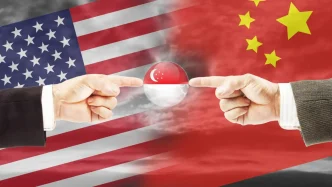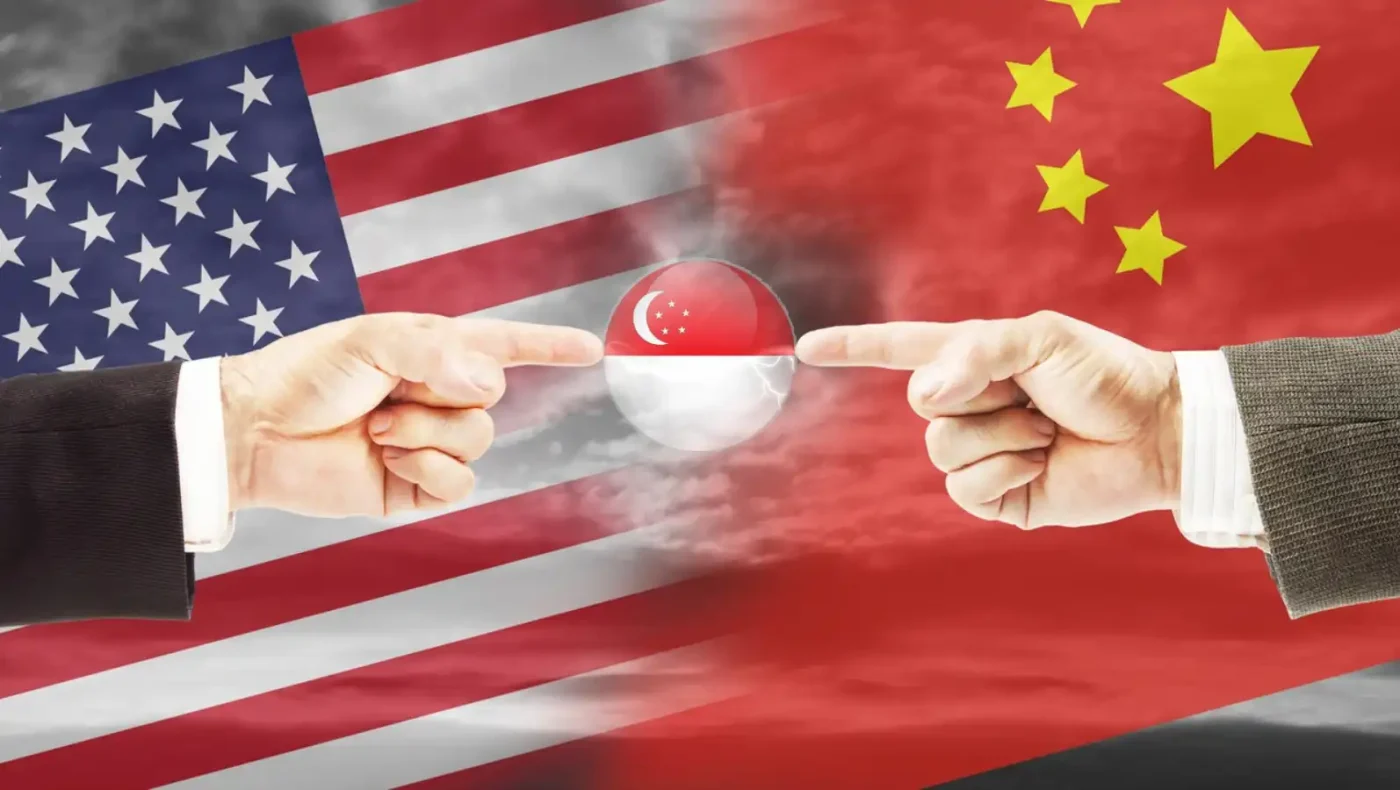Malaysia has reportedly stepped back from a proposed collaboration with Chinese tech giant Huawei on a semiconductor project, a decision shaped by escalating tensions between the United States and China over artificial intelligence (AI) and chip technology. The move, which comes as Washington intensifies restrictions on Beijing’s access to advanced tech, underscores the delicate balancing act Southeast Asian nations face in navigating superpower rivalries while pursuing economic growth.
Geopolitical Pressures and a Strategic Retreat
The Malaysian government had initially explored a partnership with Huawei to develop a chip manufacturing facility, seen as a potential boost to the country’s ambitions of becoming a regional tech hub. The project, reportedly valued at several billion ringgit (exact figures remain undisclosed), aimed to leverage Huawei’s expertise in AI and semiconductor design to position Malaysia as a key player in the global supply chain. However, sources familiar with the matter suggest that the plan has been shelved, at least temporarily, amid concerns over US sanctions and diplomatic repercussions.
The United States has ramped up export controls on advanced chip technology to China, citing national security risks. These measures, which include blacklisting Huawei and restricting its access to American tech, have placed allies and partners under pressure to align with Washington’s stance. Malaysia, a significant exporter of semiconductors and a long-standing trade partner of both the US and China, finds itself caught in the crossfire. While no official statement has confirmed the cancellation, industry insiders indicate that Kuala Lumpur is wary of jeopardizing its economic ties with the US, a major market for Malaysian electronics.
“We are reassessing our options to ensure compliance with international norms” said a senior official from Malaysia’s Ministry of International Trade and Industry, speaking on condition of anonymity. The statement reflects a cautious approach, though it stops short of acknowledging direct pressure from Washington. Analysts suggest that if confirmed, this retreat could signal a broader recalibration of Malaysia’s tech strategy, prioritizing geopolitical stability over immediate economic gains.
Economic Stakes in the Semiconductor Race
Malaysia’s semiconductor industry is a cornerstone of its economy, contributing significantly to exports and employment. The country is one of the world’s largest exporters of packaged chips, with firms like Intel and Infineon maintaining major operations in Penang and other industrial hubs. The proposed Huawei project was viewed as a way to move up the value chain, from assembly and testing to design and innovation in AI-driven chips—a sector projected to grow exponentially as demand for smart devices and autonomous systems surges.
Yet, the risks of aligning with Huawei are substantial. Since 2019, the US has imposed stringent sanctions on the Chinese firm, accusing it of espionage and intellectual property theft—charges Huawei vehemently denies. Washington’s recent expansion of the CHIPS Act, which incentivizes allies to onshore semiconductor production while curbing China’s access to cutting-edge tech, adds another layer of complexity. For Malaysia, any misstep could result in restricted access to US markets or technology, a blow to an industry already grappling with supply chain disruptions and rising costs.
“Malaysia is in a tight spot” said Dr. Aishah Rahman, a technology policy expert at Universiti Malaya. “On one hand, China offers investment and know-how; on the other, the US holds the keys to global markets and innovation ecosystems. Walking this tightrope requires strategic finesse.”
Broader Implications for ASEAN
Malaysia’s apparent backtrack is not an isolated incident but part of a wider trend across the Association of Southeast Asian Nations (ASEAN). Countries like Vietnam and Singapore, both vying for a slice of the semiconductor pie, have also faced dilemmas over partnerships with Chinese firms. Vietnam, for instance, has courted US investment in tech while maintaining robust economic ties with Beijing. Singapore, a global leader in chip manufacturing, has adopted a neutral stance but remains vigilant about complying with international sanctions.
The US-China AI rivalry extends beyond hardware to encompass software, data governance, and digital infrastructure. Huawei, despite its challenges, remains a dominant player in 5G and AI technologies, areas where ASEAN nations seek to modernize. For Malaysia, abandoning the Huawei project—if confirmed—could delay its entry into high-value tech sectors. Yet, aligning too closely with China risks alienating Western investors and governments, a trade-off that Kuala Lumpur appears unwilling to make at this juncture.
Regional analysts point to the ASEAN-Gulf Cooperation Council (GCC) platform, recently highlighted as a mechanism to court investment from six Gulf nations, as a potential alternative. While not directly tied to semiconductors, such initiatives could diversify Malaysia’s economic partnerships, reducing reliance on either the US or China. However, the tech sector’s unique demands—requiring specialized expertise and infrastructure—mean that geopolitical considerations will likely continue to dominate decision-making.
Domestic Reactions and Economic Context
Domestically, the decision has sparked mixed reactions. Malaysian tech entrepreneurs and industry groups have expressed disappointment over the potential loss of a transformative project. “Huawei’s involvement could have fast-tracked our capabilities in AI and chip design” said Tan Wei Ling, CEO of a Kuala Lumpur-based tech startup. “We need bold moves to compete globally, not hesitation driven by external pressures.”
Conversely, some policymakers argue that caution is warranted. Malaysia’s economy is already navigating headwinds, with inflation holding steady at moderate levels as of April 2025, according to recent reports. Adding geopolitical risk to the mix could unsettle investors at a time when stability is paramount. Additionally, local general practitioners and small businesses are feeling financial strain, as highlighted in separate coverage, underscoring the need for government focus on domestic priorities over ambitious but risky international ventures.
The government has yet to issue a formal position, leaving room for speculation. Public sentiment, as gauged through social media platforms like X, reflects a divide—some users lament missed opportunities, while others caution against entanglement in superpower conflicts. “Malaysia should chart its own path, not pick sides” wrote one user, echoing a broader desire for autonomy in national policy.
Looking Ahead: A Balancing Act
As Malaysia weighs its next steps, the Huawei project’s fate remains uncertain. If reports of its suspension hold true, the decision may reflect a pragmatic acknowledgment of geopolitical realities rather than a rejection of Chinese investment outright. Kuala Lumpur could still seek alternative partners—potentially from Europe, Japan, or South Korea—to advance its semiconductor ambitions without the baggage of US-China tensions.
Meanwhile, the broader question of how Southeast Asia positions itself in the AI and tech race looms large. For now, Malaysia’s retreat from the Huawei deal, if confirmed, serves as a reminder of the high stakes involved—not just for one nation, but for an entire region navigating the fault lines of global power. As policies evolve and rivalries intensify, the path forward will demand both economic foresight and diplomatic agility.
















